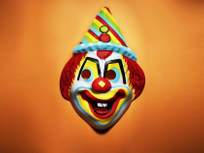Word of the Day
: June 30, 2021hale
playWhat It Means
: free from defect, disease, or infirmity : sound; also : retaining exceptional health and vigor
hale in Context
"Uncle Charles was a hale old man with a well tanned skin, rugged features and white side whiskers." — James Joyce, A Portrait of the Artist as a Young Man, 1916
"Buying healthy, thriving plants is as much art as science. But knowing what to look for when you buy your spring plants is one of the best ways to get your garden off to a good start. Starting with hale and hearty plants is one of the 'secrets' of successful gardeners." — Rob Howard, The Hamilton (Ontario, Canada) Mountain News, 6 May 2018
Did You Know?
English has two words hale: the adjective that is frequently paired with hearty to describe those healthy and strong, and the somewhat uncommon verb that has to do with literal or figurative hauling or pulling. (One can hale a boat onto shore, or hale a person into a courtroom with the aid of legal ramifications for resistance.) The verb comes from Middle English halen, also root of our word haul, but the adjective has a bifurcated origin, with two Middle English terms identified as sources, hale and hail. Both of those come from words meaning "healthy," the former from Old English hāl, and the latter from Old Norse heill. Middle English hail is also the source of the three modern English words hail (the verb, interjection, and noun) that have to do with greeting.
Test Your Vocabulary
What word for a hot alcoholic drink that is traditionally served in a large bowl especially at Christmastime shares an ancestor with hale?
VIEW THE ANSWERMore Words of the Day
-
Apr 22
liaison
-
Apr 21
bodacious
-
Apr 20
resurrection
-
Apr 19
fastidious
-
Apr 18
collaborate
-
Apr 17
uncouth











